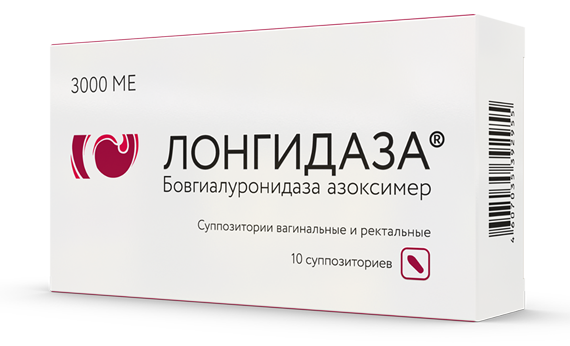
5th Annual Russian Congress of Infectious Diseases
On March 25 to 27, the Moscow-based Radisson Slavyanskaya Hotel and Business Centre hosted the 5th Annual Russian Congress of Infectious Diseases.
The event brought together Russia’s leading researchers of infectious diseases and epidemiology, members of the Russian Academy of Medical Sciences, officers of regional bodies and facilities of Rospotrebnadzor (Russian consumer protection watchdog), infectious disease specialists, epidemiologists, paediatricians, physicians, immunologists, cardiologists, neurologists, surgeons, and many others.
The Congress discussed a wide range of matters on laboratory diagnostics and epidemiological surveillance of infectious diseases, immunological aspects of the infectious process, and new approaches to treating and preventing flu and acute respiratory viral infections in adults and children.
“The mankind’s efforts against infections have helped to eliminate or drastically contain the spread of many diseases. However, today we are faced with the nature’s increasingly tough challenges that scientists worldwide are working to address,” said Professor Valentin Pokrovsky, Member of the Russian Academy of Medical Sciences and Chairman of the Congress’s Organising Committee.
Part of the Congress was a symposium entitled “Flu and Acute Respiratory Viral Infections: Results, Outlook, and New Vision of Preventing and Treating Viral Diseases”. Supported by NPO Petrovax Pharm, it focused on the global experience and Russian practice of flu vaccinations, especially among patients diagnosed with bronchopulmonary conditions. The symposium was chaired by Professor Nikolay Briko, MD, Member of the Russian Academy of Medical Sciences and Chair of the Department of Epidemiology at Sechenov First Moscow State Medical University, and Professor Irina Lytkina, MD, Head of the Epidemiology Section at Rospotrebnadzor Moscow.
“Flu incidence rate remains one of the most challenging healthcare issues worldwide,” said Nikolay Briko. “According to the WHO, seasonal flu epidemics affect up to 20% of global population annually, with 3–5 million patients diagnosed with severe flu conditions and 250,000 to 500,000 cases resulting in fatalities. The highest incidence rate during seasonal epidemics is typical of children, who contract flu 3 to 4 times more often compared to adults. Infants aged 6–12 months are exposed to the highest risk of admission to hospital, while senior citizens have the highest mortality rates of flu viruses. Vaccination is recognised as the only effective way of fighting flu. In Russia, a total of 37.7 million people have been vaccinated during the epidemic season of 2012–2013, including 13.1 million children. This makes up 26.6% of Russia’s total population, pointing to vaccination’s growing appeal among all population groups. To give you an overall picture, the share of population vaccinated over the same period in Western Europe (13 nations) and Israel was 49% and 23%, respectively. Still consistent efforts are required to ensure a larger scope of vaccination and expand the list of population groups covered. According to the WHO, the top vaccination priority is pregnant women, as vaccines help to subsequently protect their infants even up to 6 months of age. Another item on Russia’s agenda today is having more than 70% of senior citizens (aged 65 years and above) covered by vaccination.”
“During this season, Moscow has seen the flu epidemic threshold exceeded by 9.8%,” said Irina Lytkina. Since the start of epidemic season, a total of 1.4 million people in Moscow have been diagnosed with acute respiratory viral infections, and 493, with flu. These are 13.9% and 17.7% increases year-on-year, respectively.
“Most of the patients are diagnosed with the A (H1N1) swine flu virus. Viruses of A (H3N2), B, type 1 and 2 parainfluenza, RSV, and adenoviruses are also common in Moscow. “When it comes to flu, vaccination is certainly very important,” said Irina Lytkina. “Vaccines have proved capable of reducing the incidence rate of flu and acute respiratory viral infections in adults and children by 70 to 90%, and by 30 to 40% in senior citizens, while also making admission to hospital with flu or pneumonia 30 to 70% less likely and cutting mortality rates by 80%. Flu vaccines are safe even for infants aged 6 months and older, pregnant women, senior citizens, and people with chronic conditions. Since the start of this epidemic season, the number of people vaccinated in Moscow has grown to 2.75 million. As part of funding from the federal budget, Moscow received 840,000 doses of the Grippol Plus vaccine for children and 1,200,000 doses for adults. Both vaccines proved safe and effective against epidemics. With more children covered by this year’s vaccination campaign, only 65 schools out of Moscow’s total of 1,500 were disrupted by the flu epidemic,” Irina Lytkina went on to say.
“Flu is especially bad for patients with pre-existing bronchial asthma and COPD conditions,” said Mikhail Kostinov, MD, Head of the Laboratory of Vaccination and Immunotherapy of Allergic Diseases at Mechnikov Research Institute for Vaccines and Sera. “Viral infections can exacerbate COPD and bronchial asthma in up to 30% and 67% of patients, respectively. The WHO recommends that all patients diagnosed with bronchial asthma and COPD receive annual flu vaccinations regardless of the type, severity, and treatment of their pre-existing diseases. Annual flu vaccinations of COPD patients slash the flu mortality rates twice while also making the risk of exacerbated bronchial asthma conditions 60 to 70% less likely.
“Clinical trials have shown that Grippol Plus helps reduce the incidence rate of acute respiratory viral infections and exacerbations of bronchial obstructive syndrome 1.4 and 2.5 times, respectively, in patients with pre-existing lung conditions. When vaccinated, their medical appointments more than halved, with in-patient treatment required 3.9 times less often. According to the vaccine’s safety tests, Grippol Plus was well tolerated by the patients and caused no exacerbations of their main disease,” Mikhail Kostinov said.
The event was recognised by all speakers as an important venue for discussion helping professionals to share their experience and new data on infectious diseases.


